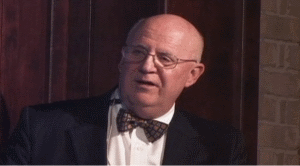Those who write enduring hymns and spiritual songs usually reflect their highest ideals and their moments of deepest intimacy with God. For that reason, we sometimes find ourselves singing words that overstate our own true commitment, challenge our actual spiritual state and convict us of our present laziness and mediocrity. Anglican clergyman Augustus M. Toplady (1740-1778) expressed just such sentiments in his well-known hymn, "Rock of Ages," when he requested that Jesus Christ who is that refuge: "Be of sin the double cure; save from wrath and make me pure." Because the meaning of … [Read more...]
Archives for February 2012
FREEDOM FROM SIN’S POWER
"How can I overcome temptation to sin?" a gracEmail reader wonders. "No matter how hard I try to resist, I still do what is wrong." * * * Every conscientious Christian asks the same question at some time. The only key to victory over sin is the supernatural power of God, available to us because of Jesus our representative and accessed by faith. Remember that Satan's power over humankind flows from human sin and it ends at the tomb. Jesus never came under Satan's power because he did not sin. When Jesus died, he entered Satan's stronghold as a conquering invader rather than as a bound victim. … [Read more...]
JESUS WILL DELIVER YOU
We Christians need to know that Jesus brings life, not condemnation (John 3:17). We already know that we are sinners. Many of us live in condemnation much of the time. Deep inside we know our private addictions and secret compulsions, whether to pride, self-centeredness, sexual lust, alcohol or other drugs, rage, power, money, possessions, or whatever. We know by experience that we cannot break these bonds in our own strength. By ourselves, we can only grit our teeth, make new resolutions, maintain public appearances and respect, calculate that we are not as bad as we might be, rationalize … [Read more...]
OUR STRUGGLE WITH SIN (2)
The previous gracEmail suggested a sample prayer for use when facing temptation. The prayer is not some simplistic formula for overcoming sin. Its recitation is not magical. Its precise wording is not important. Although the gracEmail did not list numerous Scripture citations, its simple language was the practical application of solid biblical theology. Our problem, you see, is that a part of us (which the Bible refers to as "the flesh," our "sinful nature" or the "old self") enjoys sinning and wants to do so at every opportunity. Those who belong to Christ also have a new nature which … [Read more...]
OUR STRUGGLE WITH SIN (1)
A minister writes that he has struggled many years to overcome a particular sin. "I have read, prayed, confessed, wept bitterly, and even shared it with a close brother," he writes -- "all to no avail." Finally, he resigned his pulpit and found other employment. Can I offer any encouragement? * * * Jesus died for sinners. That makes me both glad and grateful, because I am one of those sinners. Because my sin grieves Jesus my Savior, I would like to avoid it and rise above it. Yet I have found it quite impossible to conquer sin by my own strength. Like quicksand, sin seems to increase its … [Read more...]
I PRONOUNCE YOU WELL
It is the second specific healing story in Mark's Gospel (Mark 1:40-45). A leper falls before Jesus, expressing faith that Jesus can restore him. Moved with compassion, Jesus does so with a touch and a word: "Be cleansed." Jesus then directs the cured man to show himself to the priest and to make an offering as Moses commanded. Jesus was referring to the ritual prescribed in Leviticus 14:1-32, an elaborate ceremony by which a healed leper was certified to be cleansed -- both from the disease and from the stigma that had isolated him from the covenant community. What a thrill it must have been … [Read more...]
SPEAKING GOD’S FORGIVENESS
A gracEmail subscriber asks if is right to confess our sins to another human being, and whether a believer who hears our confession can offer forgiveness in the name of Christ. * * * It is true that no mere mortal has power to forgive sins, as Jesus' enemies correctly observed (Mk. 2:5-7). However, Jesus authorized and empowered his people -- in ever-widening circles -- to speak forgiveness in his name, beginning with Peter, then all the Apostles, and finally the whole church (Matt. 16:18-19; John 20:21-23; Matt. 18:15-20). James later encouraged and affirmed the proper exercise of this … [Read more...]
ASKING GOD FOR FORGIVENESS
A gracEmail reader in Texas inquires, "Are we required to ask God for forgiveness? Does he wait to forgive our sin until we ask?" * * * The gospel tells us that God forgave us in Christ long before we were even born, much less before we repented and asked his forgiveness (Eph. 4:32; Col. 1:19-22). That was based on God's own eternal purpose and grace, grounded in his own divine character, not on anything we did or anything he foresaw in us (2 Tim. 1:9). However, we cannot enjoy God's forgiveness by experience until we feel a need for it and accept it by trusting God's promise (Acts 26:18; 1 … [Read more...]
SHOULD HE DO PENANCE?
A brother asks, "Is it right, after sinning and asking God for forgiveness, to do penance by denying myself some specific pleasure? Am I thinking that God couldn't do the work alone, or am I simply being serious about sin?" * * * Perhaps you are not taking sin seriously enough. At its heart, sin is the human creature's conscious decision to reject the Creator's authority, to act as if we were God ourselves instead of a dying lump of animated clay. The enormity of such rebellion is so staggering that only God himself can provide a remedy for sin and a reconciliation for sinners. Our own good … [Read more...]
SIN NOT PRACTICED HERE
After I cited First John that a person born of God does not practice sin, someone replied that God's child never commits a single sinful act. He explained: "John uses the Greek word poieo (referring to a single deed), not prasso (referring to a regular practice)." My respondent should know. "I have had three-and-a-half years of Koine Greek," he said, "and if John had meant 'practice,' he would have used prasso." * * * GracEmails usually avoid detailed talk about Greek words, but this particular assertion and the mindset behind it require an exception to the general rule. Beginning in 1962, I … [Read more...]


